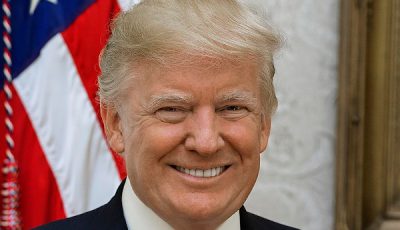Net Neutrality or… Repeal Section 230? Yeah, Okay.
 WASHINGTON — The Federal Communications Commission (FCC) is poised to repeal the Trump administration’s rules that essentially repealed net neutrality at the national level. Republicans, however, are relishing the opportunity to capitalize on the politics of entirely separate issues that bring into question, once more, the building blocks of the open internet. A commentary published to Techdirt (and republished by Above the Law) by contributor Karl Bode took issue with Republican-leaning FCC commissioner Brendan Carr and his “new and bizarre” talking point about net neutrality and Section 230.
WASHINGTON — The Federal Communications Commission (FCC) is poised to repeal the Trump administration’s rules that essentially repealed net neutrality at the national level. Republicans, however, are relishing the opportunity to capitalize on the politics of entirely separate issues that bring into question, once more, the building blocks of the open internet. A commentary published to Techdirt (and republished by Above the Law) by contributor Karl Bode took issue with Republican-leaning FCC commissioner Brendan Carr and his “new and bizarre” talking point about net neutrality and Section 230.
Carr, the lead Republican on the FCC as it remains evenly split under the interim leadership of Democratic commissioner Jessica Rosenworcel, believes that holding telecom monopolies accountable and the dismantling of a benchmark law that protects free speech on the internet can be an interchanging talking point.
“This, of course, makes no coherent sense whatsoever, but that’s not stopping those looking to demolish Section 230, a law that is integral to protecting speech online,” Bode commented in his column. Based on what Bode presented in his argument and through my research, it isn’t surprising that Carr is making such a stupid and incoherent argument. Carr, under former FCC chair Ajit Pai, was immensely powerful. If former President Donald Trump was reelected, Carr was likely to be the heir to the commission’s chairpersonship after Pai left his position, either voluntarily or by the expiration of his five-year term.
Like Pai, Carr is a “free-market” proponent in support of repealing net neutrality rules that hold U.S. telecoms and ISPs to some degree of accountability. Due to this position, Carr claimed that telecom monopolies don’t exist in the United States — or, at least to the degree that monopolistic control of the internet could harm more comprehensive broadband access and speeds.
Bode notes that he has spent his tenure as a rubber-stamping policymaker working at the whim of telecoms like Comcast, Verizon, AT&T, and others. However, he is somehow a prominent voice in support of strictly regulating Section 230, social media, and free speech online.
“I think the status quo was working, working very well. If people do want to revisit this, like they do, I would say that let’s revisit it across the board. If the concern is about a free and open internet, then I think it’s time that we look holistically at all the actors in the internet ecosystem,” Carr said in remarks he provided to the virtual INCOMPAS policy summit from earlier this month. Makena Kelly, a politics and internet reporter for The Verge, noted on a Twitter thread that Carr “suggests that if the commissioner were to revisit Title II internet regulation, it should think of the internet ‘holistically.’” Which, of course, means “looking at social media companies and moderation.”
“If you look at entities that right now are engaged in actions that are blocking access to content — It’s not your mom and pop ISP. It’s Google; it’s Apple, Amazon Web Services,” Carr added.
If this is Carr’s belief, this is a big problem for Republicans. Consider this logic: ‘Bringing back net neutrality requires a repeal of free speech protections on the internet because, why the fuck not?’ That’s some ass-backward thinking and is symptomatic of the anti-technology sentiments infecting conservative Republicans in the U.S. Luckily, we can expect net neutrality to be returned in a win for webmasters and platforms. Section 230, naturally, is an entirely separate fight. Remember, Section 230 is the law that made the internet what it is today regarding free speech and expression.
Two separate issues, both crucial to the open internet.













